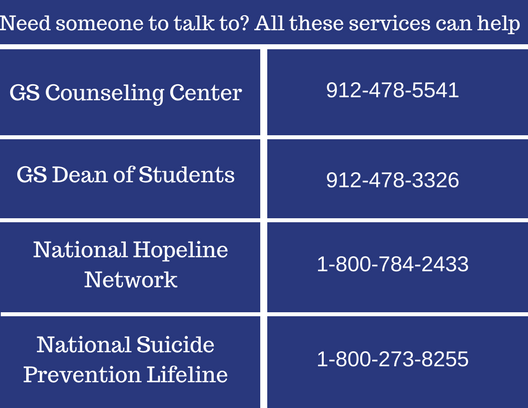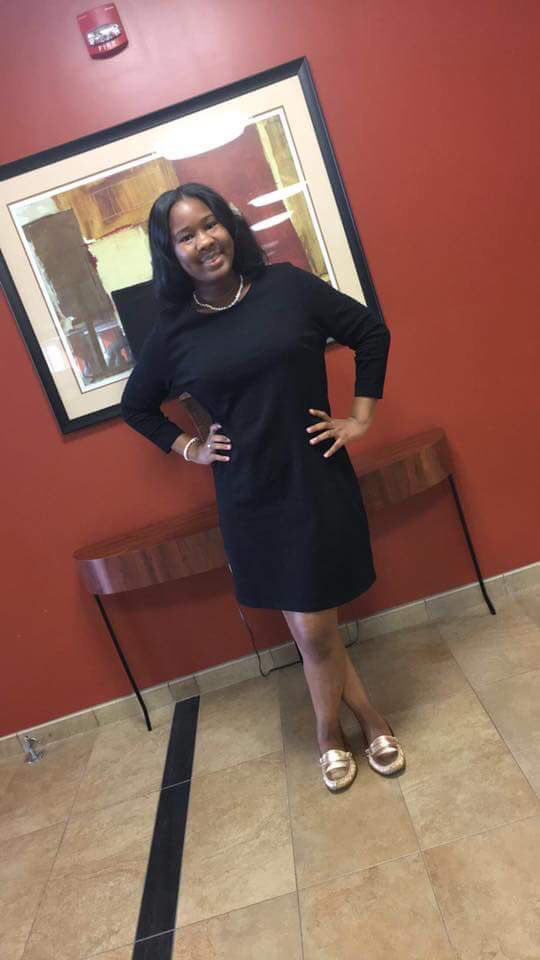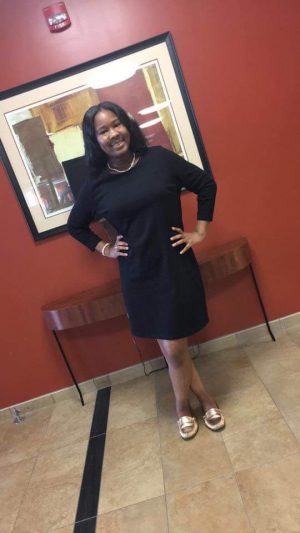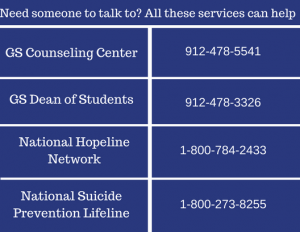Recognizing depression in yourself and how to cope with it
October 16, 2017
Depression. It’s something we have all heard of but is talked about very little among society. Most of us think that even if we were to say we think we are depressed that people could look at us as if we’re weak. Depression is more common than not among young adults and effects students here.
According to a nationwide survey of college students at 2 and 4-year institutions by the American College Health Association-National College Health Assessment, in 2009, nearly 30 percent of college students reported “feeling so depressed that it was difficult to function.”
A Students Story
Chantel Johnson, junior psychology major, whom like many first coming into this school, found it to be a big change from what she used to know. She began to find it hard to keep up with her school work and adjusting to the larger classes compared to her old college. She started to isolate herself by locking herself in her room. She started to become a lot more sad and cry more often which made it harder for her to want to do anything but eat comfort food. She said that it got so bad that Domino’s knew where she lived.
“Sometimes we often become depressed and we don’t know we’re depressed,” Johnson said about her state of mind.
Johnson said that to change her situation she would go work-out and go to the library to study more. She realized that the way she had been studying had to change; so she asked her teachers how she could improve her studying techniques and made an effort to change them.
“I don’t want this depression or this curse to become overwhelming. I don’t want it to get to a point I feel like you know I have to make a choice between life,” Johnson said.
One thing she talked about was a song that was written by Logic, who is a hip-hop artist, that’s called “1-800-273-8255.” The song is about suicide and is the actual number for the National Suicide Prevention Lifeline. Johnson l
had thought about just wanting to give up on life, but she said she never would because of the pain that she would cause those around her. The song helped her out and became her anthem through her troubles.
“I would play it every morning. It got to the point that my roommate knew the words as well,” Johnson said.
Coming Georgia Southern made her feel much smaller and changed the kind of person she was before. One of the reasons why Johnson didn’t go to get help at the counseling center is because she misunderstood a lot of things about it.
The Counseling Center
The counseling center, which is located next to Forest Drive Building, helps take care of students mental health. Each student has 12 free sessions a year and are able to go to certain events even if they are not patient.
Dr. Jodi K. Caldwell ,director of the counseling center, feels that students show signs of depression through isolation, sadness/crying, thoughts of suicide or death, appetite change and trouble concentrating.
“If you think you’re dealing with depression you probably are,” Caldwell said.
Some coping technics Caldwell said that helped were to get more sun, be more active and good nutrition. These lifestyle changes can help as well as online research and confiding in someone you trust.
Caldwell feels some of the free events they have to help with that coping process like the Cognitive Toolkit for Anxiety & Depression, which is held on Nov. 15, help teach people behavioral ways to mange thought process for depression and anxiety. She stated that the same part of the brain that deals with depression so any of their events dealing with anxiety can help those with depression or the latter.
A few events that the counseling center holds weekly to help students that are free to go to are Mindful Yoga, Coping Creatively and Emotional Wisdom. You don’t have to be good at yoga or art to go to any of these events at all. They are here to offer an outlet to help people.






